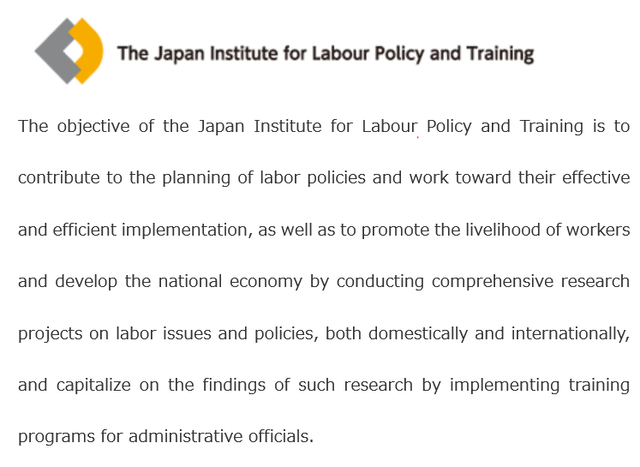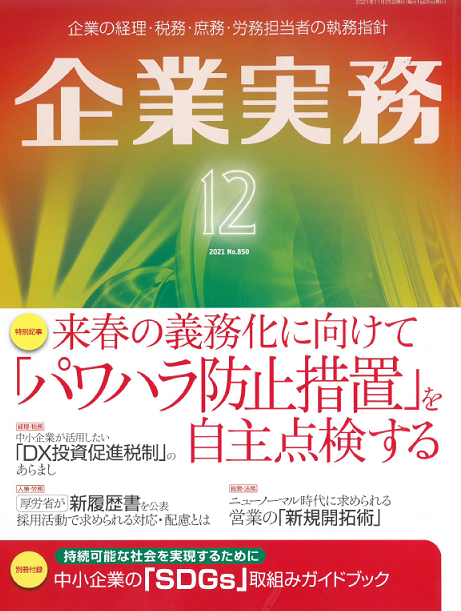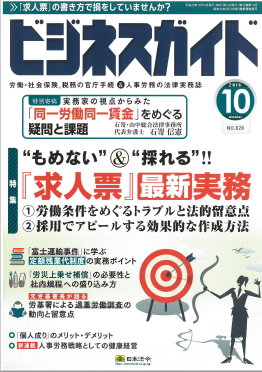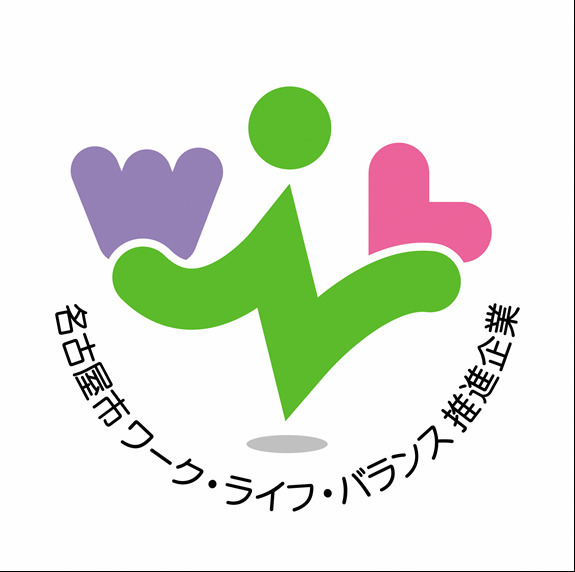
名古屋市西区で中小企業の労務管理をサポートする女性社労士事務所
特定社会保険労務士・岩田労務管理事務所
Iwata Labor Management Office
日本で起業する中小企業の外国人経営者の方、外国人労働者の方 向けに、英語でのサービスも提供しています。
 We are offering labor management services in English as well for entrepreneurs and employees of small and medium-sized enterprises. Please check the English page for details.
We are offering labor management services in English as well for entrepreneurs and employees of small and medium-sized enterprises. Please check the English page for details.
↓
Active Listening & Pursuit of Speedier
『寄り添いコンサルティング』と
『スピード手続対応』が持ち味の
特定社会保険労務士事務所です。
Open : 9:00~18:00
お気軽にお問合せください
052-551-4865
Labor News
Labor and Social Insurance News
Here are the news and topics related to labor and social security issues in Japan.
2025.9.5 Regional Minimum Wage for Fiscal Year 2025:
All Prefectures Submit Recommendations;
National Average Reaches ¥1,121 per Hour; All Prefectures Exceed ¥1,000 per Hour
The Ministry of Health, Labour and Welfare has announced the revised regional minimum wage rates for fiscal year 2025, as recommended by the Regional Minimum Wage Councils established within each prefectural labour bureau (announced September 5, 2025).
This compiles the results of investigations and deliberations by each regional council, based on references including the “Guidelines for Fiscal 2025 Regional Minimum Wage Revisions” presented by the Central Minimum Wage Council (an advisory body to the Minister of Health, Labour and Welfare) on August 4, 2025.
Key points are as follows:
Preliminary Note: Minimum wages are set as hourly rates.
● Increases ranging from 63 yen to 82 yen across all 47 prefectures (1 prefecture: 82 yen, 1 prefecture: 81 yen, 1 prefecture: 80 yen, 1 prefecture: 79 yen, 3 prefectures: 78 yen, 2 prefectures: 77 yen, 1 prefecture: 76 yen, 1 prefecture: 74 yen, 2 prefectures: 73 yen, 4 prefectures: 71 yen, 1 prefecture: 70 yen, 2 prefectures: 69 yen, 2 prefectures: 66 yen, 65 yen: 8 prefectures, 64 yen: 9 prefectures, 63 yen: 8 prefectures)
●The increase amount exceeded the guideline amount indicated by the Central Minimum Wage Council in 39 prefectures (27 prefectures last fiscal year)
●The national weighted average of the revised amount is 1,121 yen (1,055 yen last fiscal year)
● The 66-yen increase in the national weighted average represents the largest increase since the guideline system began in fiscal year 1978
● The ratio of the minimum amount (¥1,023) to the maximum amount (¥1,226) is 83.4% (81.8% last fiscal year; this ratio has improved for 11 consecutive years)
Revisions exceeding the guideline amount were implemented in 39 of Japan's 47 prefectures. Consequently, the national weighted average amount also exceeded the guideline amount of ¥1,118, reaching ¥1,121.
The recommended revised amounts will undergo procedures for objections from relevant labor and management parties at the prefectural labor bureaus. Following these procedures, the prefectural labor bureau directors will issue decisions, and the revised amounts are scheduled to take effect sequentially between October 1, 2025, and March 31, 2026.
Please note that due to the significant increase this year, the effective dates may be later in some areas.
For details, refer to the following. The revised amounts for each prefecture and their scheduled effective dates can also be confirmed in the attached document.

2025.6.3 Amended Bill on Pension System has passed the House of Representatives. MHLW also introduces the amendment plan
The “Bill to Amend a Portion of the National Pension Act, etc. to Strengthen the Functions of the Pension System in Light of Socioeconomic Changes” was passed by the plenary session of the House of Representatives on May 30th, 2025, and was sent to the House of Councillors after an amendment to specify a future increase in the basic pension in the supplementary provisions.
The draft amendment is also available on the website of the Ministry of Health, Labor and Welfare.
For details, click here.
<Act to Amend a Portion of the National Pension Law, etc. to Strengthen the Functions of the Pension System in Light of Socioeconomic Changes/amended bill passed by the House of Representatives on May 30th, 2025>
・Outline of the amended bill: https://www.mhlw.go.jp/content/001497095.pdf
・Outline of the amended bill: https://www.mhlw.go.jp/content/001497096.pdf
・ Amendment proposal: https://www.mhlw.go.jp/content/001497097.pdf
・ Amendment proposal old/new contrasting clauses: https://www.mhlw.go.jp/ content/001497098.pdf
[Confirmation] Amendment Bill at the time of submission (Introduction of outline only):
・Summary of proposed law: https://www.mhlw.go.jp/content/001488402.pdf

2025.5.16 Cabinet Approves Pension Reform Bill On May 16
The Japanese government approved a bill related to pension reform at a cabinet meeting. The bill includes the expansion of part-time workers' participation in the welfare pension system (elimination of the "1.06 million yen barrier"), revision of the old-age pension system, and an increase in the maximum monthly standard remuneration for the welfare pension system. The elimination of the "Category 3 insured person" system and the raising of the basic pension level, which were included in the initial proposal, have been deleted. The bill is expected to be passed in the current Diet session, and is expected to be discussed at a plenary session of the House of Representatives as early as March 20th.
For more information, please visit https://www.mhlw.go.jp/stf/seisakunitsuite/bunya/0000147284_00017.html

2025.3.25 Workers' compensation for injuries sustained during Amazon delivery
On March 19th, lawyers representing a male freelance Amazon delivery driver revealed that the Miyazaki Labour Standards Office had granted him workers' compensation certification on 28th February for an injury he sustained in March 2012 while making deliveries. The man concluded an outsourcing contract with a shipping company that delivers packages for Amazon. Although he had not been literally "a worker" in the context of outsourcing contract, he was judged as a ‘worker’ and certified as having suffered a work-related injury. One of the reasons for this decision was that his delivery location and working hours were managed through Amazon's smartphone app. This is the second case of an Amazon delivery driver being certified as a "worker" in terms of worker's compensation insurance in the country.
 2025.3.9 A manual was created common to all organizations for the prevention of customer harassment (Guide for the creation of industry manuals-Tokyo Metropolitan Government/TOKYO Hataraku Net)
2025.3.9 A manual was created common to all organizations for the prevention of customer harassment (Guide for the creation of industry manuals-Tokyo Metropolitan Government/TOKYO Hataraku Net)
The Tokyo Metropolitan Government/TOKYO Hataraku Net has announced that it has prepared and published a manual common to all organizations for the prevention of customer harassment (published 4 March 2025). This manual is intended to serve as a reference for industry associations when preparing manuals for their member companies that show the characteristics of customer harassment in their industry and recommended responses, etc. (Guide to the Preparation of Industry Manuals).The contents of the manual are useful not only for industry associations whose members are businesses operating in Tokyo, but also for other people. For more information, see.
<Manual common to all organizations for the prevention of customer harassment>https://www.hataraku.metro.tokyo.lg.jp/plan/kasuharamanual/index.html
2024.12.23 Elimination of the “1.06 Million Yen Barrier” Against the Backdrop of Maximum Wage Increases (Ministry of Health, Labor and Welfare Plan)
On December 10th, the Ministry of Health, Labor and Welfare (MHLW) presented a proposal to the Pension Subcommittee of the Social Security Council to eliminate the “1.06M yen annual income barrier” as a requirement for enrollment in the welfare pension system for short-time workers.
The proposal was based on the fact that wages in a number of regions have exceeded the monthly minimum requirement of at least 88,000 yen as a result of increase in minimum wages, and that even for the workers who are concerned, many of them are strongly aware of this requirement as a criterion to determine whether to make employment adjustments. In order to reduce the burden on workers who will be enrolled in social security system as a result of this elimination of the barrier, the proposal also proposes the establishment of a special measure that would allow labor and management to change the ratio of insurance premiums when short-time workers with monthly standard remuneration of 126,000 yen or less are enrolled in the welfare pension system.
The timing of the elimination of the wage requirement will be decided based on the trend of raising the minimum wage in the region. Furthermore, among those who are subject to the special exception of reduced minimum wages, such as the handicapped, short-time workers with monthly wages of 88,000 yen or less will be able to join the system on a voluntary basis if they so desire.
After the wage requirement is abolished, the government will promote the expansion of application to small and medium-sized enterprises with 50 employees or less. In this case, it was decided that sufficient time would be secured for public awareness and preparation.
The special measure for insurance premium burden is intended to limit a number of eligible employees on a temporary basis. The target population is assumed to be short-time workers earning less than 126,000 yen per month. Labor and management will be allowed to reduce the insured's own premium burden, but the employer will not be allowed to bear the entire amount. Bonuses are also subject to special measure.

2024.12.13 The second company designated of digital wage payments: The Minister of Health, Labor and Welfare has designated a fund transfer business operator. (Ministry of Health, Labor and Welfare)
In addition to cash, wages may be paid by transfer to a bank or other financial institution account with the worker's consent.
On top of these payment methods, from April 1, 2023, if the employer obtains the consent of the worker, they may make payments by transferring funds to an account at a fund transfer business operator designated by the Minister of Health, Labor and Welfare as fulfilling certain requirements (so-called digital payment of wages).
The Ministry of Health, Labour and Welfare has announced that it has designated “Recruit MUFG Business Co., Ltd.” for this service (announced December 13, 2024).
Regarding the timing of the start of the service, announcement will be made from the company .
Recruit MUFG Business Co., Ltd. is the second company to be designated as a funds transfer business operator for digital wage payments.
Please note that for digital wage payments, a labor-management agreement must be concluded at each workplace and the consent of the worker him/herself is required.
<Supplementary> With regard to the procedures for companies regarding the digital payment of wages, the law (Article 24 of the Labor Standards Act, Article 7-2 of the Ordinance for Enforcement of the Labor Standards Act) only states that “the consent of the worker (the person themselves)” is required, but note that the notice (Regarding the Transfer of Wages to a Bank Account, etc. [2022, Ministry of Health, Labor and Welfare Bulletin No. 1128, No. 4]) also states that “the conclusion of a labor-management agreement” is required.
For more information, please check here.
<Designation of Funds Transfer Service Providers for the Payment of Wages into the Accounts of Funds Transfer Service Providers (Digital Payment of Wages) (December 13, 2024)>
https://www.mhlw.go.jp/stf/newpage_46646.html
<Recruit MUFG Business Receives Designation by Minister of Health, Labor and Welfare for “Digital Payment of Wages” (Recruit Co., Ltd. / Press Release)>
https://www.recruit.co.jp/newsroom/pressrelease/2024/1213_14907.html

2024.11.12: The Labour Standards Legislative Research Council presents a discussion draft, including the proposal that ‘consecutive working days of two weeks or more should be prevented’ (Ministry of Health, Labour and Welfare)
The Ministry of Health, Labour and Welfare has published the materials for the ‘14th Labour Standards Legislative Research Council’ held on 12 November 2024.
At the Labour Standards Legislative Study Group, research and discussion is being carried out on the organisation of legal issues related to future labour standards legislation and on reviewing the Labour Standards Act in light of the implementation status of the Work Style Reform-related Act, and this time a discussion draft has been presented for compiling a report.
The following are some of the topics that have been in the news.
●Flexible working hours system that matches the reality of telework
・By expanding the core time of the flex-time system and introducing a core day (a system in which the employer decides the starting and finishing times for work on a specific day), it is thought that it will be possible to introduce a flex-time system even when there is a mixture of telework days and regular work days.
→The introduction of a core day is thought to lead to the promotion of the introduction of a flex-time system, and it is thought that it should be introduced, not just in the case of telework.
Securing regular days off
From the perspective of preventing continuous work exceeding two weeks or more, which is the recognized standard for work-related accidents, it is thought that consideration should be given including a provision in the Labour Standards Act to the effect that ‘consecutive work of more than 13 days must not be allowed’, including the case where a clause on holiday work is included in the 36 Agreement.
● Premium pay for side-job workers and multiple-job workers
There are some who point out that it is difficult to obtain permission for or accept side-job workers because the burden of managing the total hours worked for both the main and secondary jobs as an employee (whereas normal working hours are generally managed on a monthly basis) is too burdensome.
There is no system for calculating overtime premium payment on a combined basis for more than 2 additional side-jobs in countries like the United States, France, Germany and the United Kingdom.
→It is thought that the system should be revised so that the calculation of overtime premium payment is not required while maintaining the calculation of working hours to ensure the health of workers.
For more information, please see here.
<14th Study Group on Labour Standards-Related Legislation / Materials>
https://www.mhlw.go.jp/stf/newpage_45355.html

2024.10.25 Consultation service for those with questions about their worker status is to be set up at labor standards offices; Reference materials for determining worker status has also been released (Ministry of Health, Labour and Welfare)
In light of the fact that the ‘Act on the Proper Operation of Transactions with Specified Contracted Businesses (Act No. 25 of 2023; hereinafter referred to as the “Freelance and Business Transactions Proper Operation Act”)’ will come into effect on 1 November 2024, the Ministry of Health, Labour and Welfare has announced to start the following measures from Nov.1st.
◆A consultation service will be set up for people who are in doubt about whether or not they are workers, regarding violations of the Labour Standards Act, etc.
The consultation service will respond carefully to enquiries from people who are working, without being bound by the type of contract, such as a contract for work or a contract for commissioning. In addition, the service will also explain the criteria for determining whether or not someone is a worker, and will also provide a check using the ‘Self-Diagnosis Checklist for Working Methods’.
◆The Labour Standards Inspection Office will make a judgement as to whether or not someone is a worker
In order to promote understanding of the criteria for determining whether someone is a worker or not, the Ministry of Health, Labour and Welfare has newly compiled a collection of reference materials summarising recent representative court cases relating to the determination of worker status.
If there is suspicion of a violation of the Labour Standards Act, etc. based on the content of the consultation from a person in question, the labour standards offices, while making use of these materials, will carry out investigations as a result of such consultation reports, in principle, to determine whether or not the person making the consultation is a worker or not.
Through this initiative, the Ministry will work to improve the working environment for those who are contracted as freelancers but are in fact workers.
For more information, please refer to here.
<A consultation service for those whose worker status is in doubt will be set up at labour standards offices>
https://www.mhlw.go.jp/stf/newpage_44487.html
Also, please check the checklist and reference materials mentioned above, which are also introduced on this page.
<‘Self-diagnosis checklist for working styles’>
https://www.mhlw.go.jp/content/11202000/001283001.pdf
<Reference materials for determining worker status under the Labour Standards Act>
https://www.mhlw.go.jp/content/001319389.pdf

2024.10.18 Health insurance cards will no longer be issued after December 2nd, 2024 (Japan Pension Service)
As of December 2, 2024, the issuance of new health insurance cards will cease, and a system will be introduced in which medical institutions will be visited using the My Number Card (hereinafter referred to as the “My Number Health Insurance Card”) with which the health insurance card has been registered.
*You can use your current health insurance card until December 1st, 2025.
However, if you lose your health insurance eligibility due to retirement or other reasons before December 1st, 2025, you can only use your card until that time.
The Japan Pension Service has announced the termination of new health insurance card issuance (announced on October 18th, 2024).
If you do not have a My Number Card or are in a situation where you cannot use your My Number Health Insurance Card, you can visit a medical institution with the “Certificate of Eligibility” issued by the Japan Health Insurance Association.
<Notes on the Certificate of Eligibility>
If you are a new insured person or dependent and require a certificate of eligibility, you should submit the “Application for Health Insurance Coverage” or “Application for Health Insurance Dependent (Change)” in the new format on or after December 2nd, 2024.
If you are an insured person or dependent and require a certificate of eligibility, please apply directly to the Japan Health Insurance Association.
For more information, please refer to here.
The new formats for the “Health Insurance Enrollment Application” and “Dependent (Change) Application” are also introduced.
https://www.nenkin.go.jp/oshirase/taisetu/2024/202410/1018.html

2024.10.10 Japan's first anti-customer harassment ordinance enacted in Tokyo, to come into effect in April 2025
The 'Tokyo Metropolitan Government's Ordinance on the Prevention of Customer Harassment' was unanimously passed in the Tokyo Metropolitan Assembly on October 4th 2024, and has now been enacted. This is the first ordinance of its kind in Japan, and it will come into effect on April 1st 2025.
There are also moves to enact similar ordinances in other local public bodies regarding the prevention of customer harassment, and it seems that the government is also considering submitting a related bill to the ordinary session of the Diet next year. The “Tokyo Metropolitan Government Ordinance on the Prevention of Customer Harassment” is attracting attention as the first of its kind in Japan. The following is an overview of the ordinance.
<Tokyo Metropolitan Government Ordinance on the Prevention of Customer Harassment (Overview)>
(1) Basic principles
While working to prevent customer harassment throughout society, in doing so, the aim must be to ensure that customers and other parties and workers respect each other as equals.
(2) Prohibition
No person shall engage in customer harassment in any situation.
(3) Responsibilities of each entity
The Tokyo Metropolitan Government shall provide information, awareness-raising and education, consultation and advice, and other necessary measures to customers, etc., workers, and business operators regarding the prevention of customer harassment.
Customers, etc., shall endeavor to deepen their interest in and understanding of customer harassment and to exercise the necessary caution in their words and actions toward workers.
Employees: They must deepen their interest in and understanding of customer harassment and endeavor to take action that contributes to the prevention of customer harassment.
Employers: They must endeavor to ensure the safety of employees who have suffered customer harassment and take measures such as requesting customers to stop.
(4) Creation of guidelines
The Tokyo Metropolitan Government shall create and publish guidelines* for the prevention of customer harassment.
*Matters stipulated in the guidelines: “Details of customer harassment”, “Responsibilities of customers, etc., workers, and business operators”, “Measures by the Tokyo Metropolitan Government”, “Initiatives by business operators”, etc.
⑸ Measures, etc. by Business Operators
Business operators shall endeavor to create guidelines for the prevention of customer harassment, etc., based on the guidelines.
The date of enforcement of this ordinance is April 1, 2025.
With regard to customer harassment, it is important to note that businesses are obliged to make efforts to ensure the safety of their employees and to take measures such as offering customers to stop the harassment, as well as to make efforts to create guidelines to prevent customer harassment. This ordinance applies to businesses operating in Tokyo, but the content is also worth referring to for businesses across the country.
For more details, please refer to here.
<(Tokyo Metropolitan Government) Third Regular Session of the 2024 Diet: Proposed Bills and Voting Results
/ Tokyo Customer Harassment Prevention Ordinance (Newly Established) (Draft Bill Passed)>
https://www.metro.tokyo.lg.jp/tosei/hodohappyo/press/2024/09/11/18_01.html

2024.8.30 All Prefectures Reported Regional Minimum Wages for FY 2024; 27 Prefectures Exceed Guidelines; National Average being 1,055 yen
The Ministry of Health, Labor and Welfare (MHLW) has announced the revised minimum wages by region for FY 2024, as reported by the Local Minimum Wage Councils established in prefectural labor bureaus (announced on August 29, 2024).
This report is a compilation of the results of the investigation and deliberation by the local minimum wage councils based on the “Guidelines for Revisions of Regional Minimum Wages for FY 2024” issued by the Central Minimum Wage Council, an advisory body to the Minister of Health, Labour and Welfare, on July 25, 2011.
The main points of this report are as follows
・1 prefecture raised the minimum wage by 84 yen, 2 prefectures by 59 yen, 1 prefecture by 58 yen, 1 prefecture by 57 yen, 3 prefectures by 56 yen, 7 prefectures by 55 yen, 3 prefectures by 54 yen, 1 prefecture by 53 yen, 2 prefectures by 52 yen, 6 prefectures by 51 yen, and 20 prefectures by 50 yen
・27 prefectures exceeded the amount of increase set in the guideline by the Central Minimum Wage Council, in comparison with 24 prefectures which did in the previous year.
・The national weighted average of the increase was 1,055 yen (1,004 yen in the previous year).
・51 yen increase in the national weighted average is the highest increase since the standard system began in 1978.
・The ratio of the minimum amount (951 yen) to the maximum amount (1,163 yen) is 81.8% (80.2% in the previous year. This ratio has improved for 10 consecutive years.)
The national weighted average amount was 1,055 yen, exceeding the 1,054 yen suggested as the guideline amount.
The reported revised amount is scheduled to take effect sequentially between October 1 and mid-October by decision of the directors of the Prefectural Labor Bureaus, following the procedures for objections from labor and management concerned at the Prefectural Labor Bureaus.
For details, please refer to below.
The revised amount and effective date for each prefecture can also be found in the Appendix.
<All prefectures have reported their minimum wages by region for fiscal 2024.
https://www.mhlw.go.jp/stf/newpage_42150.html

2024.8.21 Announcement from Japan Pension Service “Sending Notices, etc. to Establishments Subject to Expansion of Coverage for Part-Time Workers” and Other Information
The Japan Pension Service (JPS) publishes “Notices from the Japan Pension Service” basically every month to provide information on the pension system, etc. to employers and employees insured by the Employees' Pension Insurance.
The August 2024 issue introduced the following 3 notices; “Sending Notification, etc. to Worksites Subject to Expansion of Coverage for Part-Time Workers,” “Notification of Those Not Insured by the Japanese Pension System Due to Social Security Agreements, etc.,” and “Have You Omitted to Notify the Dependent Spouse of the National Pension Plan's Category 3 Insured Person? and other information.
Click here for more information.
<“Notice from Japan Pension Service” August 2024 (National Edition)
https://www.nenkin.go.jp/service/kounen/info/oshirase/20140627.files/zenkoku202408.pdf
Click here for the page containing “Notices from the Japan Pension Service.
Back numbers are also available.
<The page where “Notices from the Japan Pension Service” is posted is here.
https://www.nenkin.go.jp/service/kounen/info/oshirase/20140627.html

2024.8.9 Wages paid digitally: Minister of Health, Labor and Welfare designates fund transfer service providers for the first time (Ministry of Health, Labor and Welfare)
Wages may be paid in currency or, with the consent of the worker, by transfer to a bank or other financial institution's deposit or savings account according to the Labor Standards Act.
In addition to these payment methods, as of April 1, 2023, employers may, with the consent of workers, pay wages by transferring funds to the account of a fund transfer agent designated by the Minister of Health, Labor and Welfare as meeting certain requirements (so-called digital payment of wages).
After the enactment of this amendment, no fund transfer agency had been designated until August 9, 2024, when the Minister of Health, Labor and Welfare designated “PayPay Inc.” as a first fund transfer agency for wage payments to accounts of fund transfer agencies, based on Article 7-2, Paragraph 1, Item 3 of the Enforcement Regulations of the Labor Standards Act.
MHLW leads you to confirm the announcement from the company regarding the start of the service.
The digital payment of wages requires the conclusion of a labor-management agreement at each workplace and the consent of each worker.
Supplemental information: The procedures for digital payment of wages at companies are stipulated by law (Article 24 of the Labor Standards Act and Article 7-2 of the Enforcement Regulations of the Labor Standards Act) as only obtaining the “consent of the worker (himself/herself)”. However, please note that “conclusion of a labor-management agreement” is also required in the notice (regarding wage account transfers, etc. [Kiho No. 1128, 2022]).
For details, please refer to the sites below.
<Designation of Funds Transfer Service Provider for Wage Payment to Funds Transfer Service Provider's Account (Digital Payment of Wages)
https://www.mhlw.go.jp/stf/newpage_41528.html
<Received designation from the Minister of Health, Labor and Welfare for digital payment of wages, plans to launch “PayPay Payroll Receipt” for all users within this year (PayPay Inc. / Press Release)
https://about.paypay.ne.jp/pr/20240809/01/
For more information on digital wage payment and designated fund transfer service providers, please confirm in the below web pate.
The site also introduces “Sample Forms of Labor-Management Agreement on Wage Payment Methods” and “Leaflet published in August 2024”.
<Payment of Wages to the Account of a Funds Transfer Service Provider (Digital Payment of Wages) (Ministry of Health, Labor and Welfare)

2024.8.2 Positive Image of Companies with High Childcare Leave Utilization Rate (Survey on Attitudes Toward Childcare Leave Utilization among Young People)
The Ministry of Health, Labour and Welfare (MHLW) has released preliminary results of a survey on attitudes toward taking childcare leave among young people, conducted as part of its "Project to Promote Male Employees to Take Childcare Leave (Ikumen Project)" (released on July 31, 2024).
The survey was conducted as a quantitative survey via the Internet (2,026 valid samples were collected), targeting young male and female high school and university students aged 18-25 nationwide.
The key findings of the survey are as follows
77.9% of young adults are aware of the need to balance work and private life.
The level of awareness of the childcare leave system among younger respondents was nearly 90%, with 92.4% saying they were aware of the system and 87.7% saying they intended to take it.
The strong desire among young people to take childcare leave was also evident, with 88.6% wanting their spouses to take childcare leave.
Furthermore, when asked how long they would like to take childcare leave, approximately 30% of men said they would like to take six months or more, and 16.0% of men said they would like to take one year or more, indicating a high level of desire for long-term childcare leave.
When asked about the period during which they wanted to take childcare leave, about 30% of men said they wanted six months or more, while 16.0% of men said they wanted one year or more, indicating a high desire for long-term childcare leave.
In addition, 61.0% said they "do not want to work for a company that does not have a track record of male employees taking childcare leave," indicating the importance they place on the "track record of such a data" in their job hunting activities.
When asked what kind of information about marriage and childbirth from a company would increase their desire to find a job, more than 30% of the respondents answered "the rate of male employees taking childcare leave" as the most important factor.
The survey also revealed that respondents have positive images of companies with high rates of childcare leave, such as "stable" (41.5%), "employee-oriented" (39.3%), "progressive" (22.6%), and "young employees can play an active role" (21.5%).
In this survey, we clarified and disseminated the attitudes of young people toward taking childcare leave and working styles, and the Ministry hopes to "increase social momentum for men in particular to take childcare leave, promote the use of childcare leave in small and medium-sized companies, and recruit and retain young human resources".
For more information, please click here.
<"Survey on Attitudes Toward Childcare Leave among Young People (Preliminary Figures)" has been released.

2024.7.24 Guideline for Revisions to Regional Minimum Wages for Fiscal 2024 Determined; All Ranks to Receive 50 Yen Increase; National Average to 1,054 Yen per Hour
At the 69th Central Minimum Wage Council meeting held on July 25, 2024, the Ministry of Health, Labor and Welfare (MHLW) released a report on the guidelines for revisions to regional minimum wages for fiscal 2024.
The main points of the report are as follows
Guideline for each rank
The guideline for the amount of increase in the minimum wage by region (the rule is that it is indicated by the hourly wage) for each prefecture is as follows:
Rank A, Rank B and Rank C: all JPY 50 per hour increase
Note: The minimum wage is calculated based on the economic reality of each prefecture. The guideline for the minimum wage increase for each prefecture is divided into three ranks (A-Ⅽ) according to the actual economic situation of each prefecture. Currently, 6 prefectures, including Tokyo, are ranked A, 28 prefectures, including Ibaraki, are ranked B, and 13 prefectures, including Okinawa, are ranked C.
The national weighted average increase is JPY 50 per hour, which is the highest since the guideline system began in 1978. This translates into a rate of increase of 5.0% (4.5% last year).
If the minimum wage is revised in accordance with the guideline, the national weighted average minimum wage by region in FY2024 will be 1,054 yen (currently 1,004 yen).
By region (prefecture), Tokyo will have the highest minimum wage at 1,163 yen, and Iwate Prefecture will have the lowest at 943 yen.
The regional minimum wage councils will make a report based on this report, as well as on surveys of actual wages in each region and the opinions of witnesses.
Last fiscal year, there was a series of revisions that exceeded the standard, and the national weighted average was 1,002 yen in the standard, but actually rose to 1,004 yen.
Although the guideline has been set for the time being, future trends will be closely watched.
For more details, please click here.
<Regional Minimum Wage Revision Guideline for Fiscal 2024>
https://www.mhlw.go.jp/stf/newpage_41785.html

2024.07.23 Q&A on the Training and Employment System and the Specified Technical Skills System Released (Immigration Services Agency)
The Immigration Services Agency has released a "Q&A on the Training and Employment System and the Specified Technical Skills System" (July 19, 2024).
For example, the following questions are addressed.
Q. What is the purpose of this legal revision?
A. In recent years, Japan's labor shortage has become more serious, while international competition for human resources has also intensified. In addition, issues have been pointed out with the technical internship system to date, such as the discrepancy between the objectives of the system and the actual situation, and the protection of the rights of foreign nationals. As it is essential to accept foreign nationals as one of the measures to address the labor shortage, it is important to establish a system that is attractive to foreigners so that Japan can become the "country of choice" for foreigners and properly secure human resources to support Japanese industry.
The amendment to the law will develop and dissolve the technical internship system and establish a training and employment system for the purpose of human resource development and securing human resources, and will solve the problems that have been pointed out in the technical internship system, as well as bridging between the training and employment system and the specified skills system. The goal is to create an easy-to-understand system that allows foreign nationals to develop their careers while working in Japan, and to secure human resources who will support Japanese industry over a long term.
Q. When will the establishment of the "Training and Employment System" and the revision of the "Specified Technical Skills System" start?
A. The new training and employment system and the revised specified skills system will come into effect within three years from the date of promulgation of the revised law (June 21, 2024), but the effective date has not been determined at this time.
Once the enforcement date is decided, it will be announced on our website.
For details, please click here.
<Q&A on the "Training and Employment System" and the "Specified Skill System" is available at
https://www.moj.go.jp/isa/applications/faq/ikusei_qa_00002.html

2024.05.31 Law to Amend the Child Care and Family Care Leave Law, etc. for the Purpose of Realization of Flexible Working Styles According to the Age of Children and Prevention of Leaving the Workforce for Nursing Care, etc. Promulgated in the Official Gazette
On May 31, 2024, the "Act on the Welfare of Workers Who Take Care of Children or Other Family Members Including Child Care and Family Care Leave and Partial Amendment to the Act on Advancement of Measures to Support Raising Next-Generation Children (Act No. 42 of 2024)" was promulgated in the Official Gazette.
Under this revised law, in order to enable both men and women to balance work and childcare/nursing care, the following measures will be taken:
・expansion of measures to realize flexible working styles according to the age of children
・expansion of the coverage of the obligation to publicize the status of childcare leave taken
・promotion and strengthening of next-generation childcare support measures
・strengthening of support systems to balance work and nursing care to prevent employees from leaving the nursing care workforce.
Companies will have to take measures to prevent employees from leaving their jobs to care for family members.
The revision requires revision of employment regulations (childcare/nursing care leave regulations) and compliance with the newly mandated provisions.
Basically, the enforcement date is April 1, 2025, but it will be enforced in several phases from the date of promulgation.
We expect that more information will be published in the near future to explain the revisions, but for the time being, we would like to introduce the contents of the Official Gazette.
For more details, here are the sites in Japanese.
<Law Concerning Partial Amendment to the Law Concerning the Welfare of Workers Who Take Care of Children or Other Family Members Including Child Care and Family Care Leave and the Law to Promote Measures to Support the Development of the Next Generation (Law No. 42 of 2024)
https://kanpou.npb.go.jp/20240531/20240531g00131/20240531g001310005f.html
*The latest 30 days of information in the Official Gazette can be viewed free of charge.
Summary of the bill (enacted as proposed)
<A bill to partially amend the Act on the Welfare of Workers Who Take Care of Children or Other Family Members Including Child Care and Family Care Leave and the Act on Advancement of Measures to Support Raising Next-Generation Children (submitted on March 12, 2024)
Outline:
https://www.mhlw.go.jp/content/001222652.pdf
Outline of the draft law:
https://www.mhlw.go.jp/content/001222653.pdf
Text of the proposed law in comparison with the old one:
https://www.mhlw.go.jp/content/001222655.pdf

2024.1.31
Outline of a draft law to partially amend the Child Care and Family Care Leave Law, etc.: Labor Policy Council reports that it is appropriate to draft a bill (MHLW)
The Labor Policy Council of the Ministry of Health, Labour and Welfare reported on January 30, 2024, that the Ministry of Health, Labour and Welfare's Labor Policy Council generally approved the "Outline of the Law Concerning the Welfare of Workers Who Take Care of Children or Other Family Members Including Child Care and Family Care Leave and the Law to Amend the Next Generation Nurturing Support Measures Promotion Law," which was submitted for consultation on the same day.
In response, the Ministry of Health, Labor and Welfare (MHLW) has prepared a draft law and plans to submit it to the current ordinary Diet session.
As for the so-called Child Care and Family Care Leave Act, the draft law includes the following proposed amendments to a wide variety of items, which are scheduled to come into effect in April 2025 or later.
・Amendments to child nursing care leave
・Amendments to nursing care leave
・Amendments to restrictions on overtime work for childcare
・Establishment of measures, etc. when a request for nursing care is made
・Amendments to measures concerning the development of the employment environment and employment management, etc.
・Amendments to public disclosure of the status of childcare leave taken
・ Amendment of measures to shorten the prescribed working hours for childcare
・ New establishment of measures for workers raising children from 3 years old to the beginning of elementary school
・ Amendment of measures for workers raising children up to the beginning of elementary school and for workers caring for their families, etc.
For more information, please click the URL underneath.
https://www.mhlw.go.jp/stf/ houdou/0000073981_00012.html

2024.1.30
Prefectural Insurance Premium Rates for FY2024: 46 Prefectures, Excluding Kanagawa Prefecture, to Change (Association Kenpo)
The Japan Health Insurance Association (JHIA) has released materials from the 128th meeting of the Management Committee of the Japan Health Insurance Association, held on January 29, 2024. At this Steering Committee meeting, the following items were presented:
"Determination of Prefectural Insurance Premium Rates for FY2024 (Draft) [Ref. 2-2]" and "Insurance Premium Rates for Long-Term Care Insurance for FY 2024 [Ref. 2-4]".
The main points are as follows;
The prefectural insurance premium rates were changed in 46 prefectures (22 prefectures lowered, 24 prefectures raised), excluding Kanagawa Prefecture. ) The national average of 10% is maintained.
The uniform national long-term care insurance premium rate was reduced from 1.82% to 1.60%.
Effective from March 2024 (April payment).
(Supplemental information: For those insured on a voluntary basis, the rate will be applied from April (for payment in the same month).
For example, the prefectural insurance premium rate in Tokyo for fiscal 2024 is proposed to be reduced from 10.00% to 9.98%. Since the nationwide uniform long-term care insurance premium rate is proposed to be reduced from 1.82% to 1.60%, if the premium rate is revised as planned, the premium rate in Tokyo will be reduced by 0.02% for those who are not Category 2 insured by long-term care insurance and by 0.24% for those who are Category 2 insured by long-term care insurance.
For more information, please click the URL underneath. Check with your local branch (prefecture) for proposed changes.
<128th National Health Insurance Association of Japan Steering Committee/Materials (Japanese site)
https://www.kyoukaikenpo.or.jp/g7/cat720/r05/006/240129/
2023.10.13
MHLW released new pamphlets and circulars regarding "Rules clarifying working conditions" which will be revised from April 2024.
The Ministry of Health, Labor and Welfare has recently updated the web page which introduces a set of materials and information related to the "indefinite-term conversion rules, clarification of working conditions on labor contract, etc.''
Particularly, the materials on the dedicated page "rules clarifying working conditions will be revised from April 2024" have been added and updated (published on October 12, 2023).
Here is the page;
<Rules for clarifying working conditions will change from April 2024>
https://www.mhlw.go.jp/stf/newpage_32105.html <the pamphlet itself is in Japanese>
The following materials are to be reviewed as well:
<Pamphlet Are you prepared for changes to the rules clarifying working conditions from April 2024? >
https://www.mhlw.go.jp/content/11200000/001156048.pdf <Japanese page>
<Regarding the enforcement of ministerial ordinances, etc. that partially amend the Labor Standards Act Enforcement Regulations and the Special Measures Act Enforcement Regulations regarding improvement of the settings of working hours, etc.>
https://www.mhlw.go.jp/content/11200000/001156120 .pdf <Japanese page>
On top of these, as stated in the above notice, "Model Notice of Employment" (applicable from April 1, 2024) that corresponds to this amendment is also introduced. Check the URL underneath..
<Model Notice of Employment (for regular workers: indefinite-term and fixed-term workers)>
https://www.mhlw.go.jp/content/11200000/001156118.pdf <Japanese page>

2023.9.30
On September 27th 2023, the headquarters for building social security for all generations held a rotating meeting, and they announced the "annual income barrier and support enhancement package'' on the same day.
<Summary of “Annual Income Barrier/Support Enhancement Package”>
As an immediate response, the government will take the following measures.
(1) Responding to 1.06M yen barrier
Establishment of new career-up subsidy course [course for improving treatment when applying for social insurance]
Exclusion of social insurance application promotion allowance from standard remuneration calculation
⑵ Responding to 1.3M yen barrier
Facilitation of dependent certification based on employer's certification
The government will loosen the dependent certification in the case of dependents' temporal income increase by extended working hours, allowing them to submit their employer's certificate.
(3) Responding to spousal allowance
Promoting reviews of corporate spousal allowances
The government announced that it will promote these initiatives and support the creation of an environment where people can work without worrying about annual income barriers.
< Addressing the so-called “annual income barrier”>
https://www.mhlw.go.jp/stf/taiou_001_00002.html

2022.12.24
Industrial Accident Compensation Insurance Application Guidance for Foreign Workers
<See Detais Here>
https://www.mhlw.go.jp/new-info/kobetu/roudou/gyousei/rousai/gaikoku-pamphlet.html

2021.10.29
Employment rererrals as of September 2021
MHLW announced the Employment referrals as of September 2021.
<See Detais Here>
https://www.mhlw.go.jp/english/database/db-l/g_workers_sep2021.html
2021.7.27 Provisional Report of Monthly Labour Survey
MHLW announced the Provisional Report of Monthly Labour Survey on May 2021.
<See Detais Here>
https://www.mhlw.go.jp/english/database/db-l/r03/2105re/2105re.html 2021.6.8 Provisional Report of Monthly Labour Survey
2021.6.8 Provisional Report of Monthly Labour Survey
MHLW announced the Provisional Report of Monthly Labour Survey.
<See Detais Here>
https://www.mhlw.go.jp/english/database/db-l/r03/2104pe/2104pe.html 2021.5.21 Pamphlet for foreign workers by Aichi Prefectural Government
2021.5.21 Pamphlet for foreign workers by Aichi Prefectural Government
Aichi Prefectural government has released pamphlets for foreign workers, introducing labor rules in Japan in an understable way in each language.
https://www.pref.aichi.jp/soshiki/rodofukushi/0000060502.html

2021.5.20 Provisional Report of Monthly Labour Survey
MHLW announced the Provisional Report of Monthly Labour Survey.
<See Detais Here>
https://www.mhlw.go.jp/english/database/db-l/r03/2103pe/2103pe.html
2021.5.1 Employment rererrals as of March 2021
MHLW announced the Employment referrals as of March 2021.
<See Detais Here>
https://www.mhlw.go.jp/english/database/db-l/g_workers_mar2021.html 2021.4.30 The support fund and allowance for the leave forced to be taken under the COVID-19 outbreak
2021.4.30 The support fund and allowance for the leave forced to be taken under the COVID-19 outbreak
MHLW Prefectual Labour Bureaus have announced the leaflet regarding the support fund's eligibility and its application.
<See Detais Here>
https://www.mhlw.go.jp/content/11600000/000648770.pdf

2021.4.15 MHLW has released textbooks and audiovisual materials (videos) for safety and hygiene education by indutsry.
<See Deails Here>
https://anzenvideo.mhlw.go.jp/foreign-worker/kyozai.html#common

2020.8.1 ”To those who have left their jobs” by Aichi Labour Bureau
Aichi Labor Bureau has released the revised brochure in accordance with the revision of the employment insurance act regarding the job applicant benefit covered under the employment insurance.
<See Detais Here>
https://jsite.mhlw.go.jp/aichi-roudoukyoku/content/contents/000692720.pdf
2020.4 ”The Industrial accident compensataion insurance application guidance” for foreign workers” by MHLW
MHLW has revised the industrial accident compensation insurance application guidance for foreign workers.
<See Detais Here>
https://www.mhlw.go.jp/new-info/kobetu/roudou/gyousei/kantoku/dl/161108-02.pdf

2020.3 MHLW has released Manga version of educational materials by industry entitled "Learn Through Manga- Health,Safety, and Injury Prevention for Workers"
<General>
https://www.mhlw.go.jp/content/11300000/01_kyoutu_01English.pdf
<Nursing Care Industry>
https://www.mhlw.go.jp/content/11300000/02_nursing_01English.pdf
<Building Cleaning Industry>
https://www.mhlw.go.jp/content/11300000/03_building_cleaning_01English.pdf
<Three fields of Manufacturing Industry>
https://www.mhlw.go.jp/content/11300000/04_METI_01English.pdf
<Automobile Maintenance Industry>
https://www.mhlw.go.jp/content/11300000/05_Car_01English.pdf
<Airplane Industry>
https://www.mhlw.go.jp/content/11300000/06_airplanes_01English.pdf
<Lodging Industry>
https://www.mhlw.go.jp/content/11300000/08_hotels_01English.pdf
<Food and Beverage Manufacturing Industry>
https://www.mhlw.go.jp/content/11300000/09_foods_01English.pdf
<Food Service Industry>
https://www.mhlw.go.jp/content/11300000/10_restaurant_01English.pdf

Outline of the “Act on the Arrangement of Related Acts to Promote Work Style Reform” (Act No. 71 of 2018)
<See Details Here>
https://www.mhlw.go.jp/english/policy/employ-labour/labour-standards/dl/201904kizyun.pdf
Brief Job Stress Qestionaire in English (57 Items)
This survey form is recommended by MHLW in implementing stress-check test mandated for companies over 50 employees.
https://www.mhlw.go.jp/bunya/roudoukijun/anzeneisei12/dl/stress-check_e.pdf








